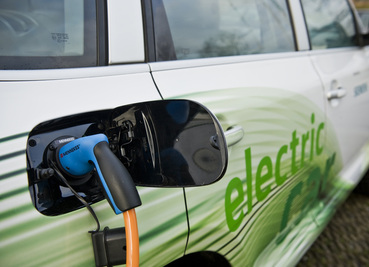Why electric mobility?
|
- Dependence on foreign oil
In 2011, India was the fourth largest energy consumer in the world after the United States, China, and Russia.
We import 85% of our oil today. We are also the world’s fifth largest net importer of oil, importing more than 2.2 million barrels a day, or about 70 percent of consumption. A majority of our crude oil imports come from the Middle East, with Saudi Arabia and Iran supplying the largest shares. We spent close to 140 billion $ on foreign oil in 2011/12.
Most of this is to drive our transport and our vehicles.
If we are able to plug in our vehicles, and use electricity that would be generated at home, we would enrich our economy by keeping that wealth here and using that money for much needed social welfare.
So if by electrification of our transport we say reduce our oil imports from say 140 billion $ per year to say 40 billion $, that would be a savings of 100 billion $ every year.
- Protect the environment
Carbon monoxide, nitrogen oxides, and hydrocarbons are released when fuel is burned in an internal combustion engine and when air/fuel residuals are emitted through the vehicle tailpipe.
Electric cars produce far less green house gas emissions than an ICE car, even when power plant emissions are figured in.
Most emissions from electric vehicles come from power plants. It is much easier to clean the emissions of power plants than those of a few million cars. Electricity can also be produced much more cleanly through the use of wind, hydro, solar, and other green technologies.
The environment issues will hit the developing countries with huge populations, the most.
Countries like India, China have already reached the tipping point and should seriously consider alternative modes of transport. - Sense of independence
There is a great sense of independence with owning an electric vehicle, you are so much less dependent on external factors.
An electric car, especially one coupled with solar panels at home for recharging, allows total control over the source of energy used to power your vehicle. The power no longer lies in the hands of oil companies or the government but with the consumer. - Economical
Electric vehicles cost less to operate than ICE based vehicles. The cost of charging electric vehicles is minimal compared to the cost of buying petrol for a vehicle. Even when you figure in the cost of replacing the battery pack, every 3-5 years, the cost of owning an electric vehicle is still lower than that of owning a gas car.
- Reliable
Electric vehicles are inherently much more reliable than ICE cars. Petrol burning engines have hundreds of moving parts which all have the potential to fail at any stage. There are also many disposable parts in an ICE which aren't present in an Electric vehicle. Items such as oil filters, belts, air filters etc. just aren't required for electric propulsion.
In an electric motor only the rotor (1 part) is moving and typically the only thing that needs to be serviced is to replace the brushes every 100,000 km or so.

